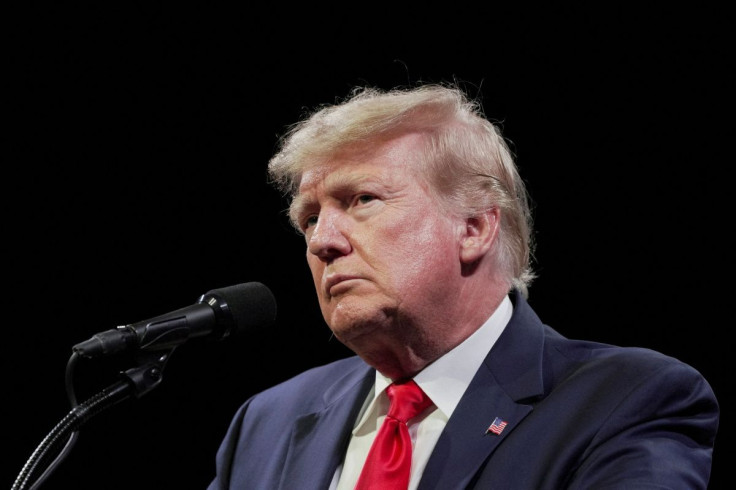Trump's Pressure Campaign On States In Focus At Jan. 6 Capitol Riot Hearing

The congressional committee investigating the Jan. 6, 2021, assault on the U.S. Capitol shifted its focus on Tuesday to the pressure Donald Trump put on state officials as he sought to remain in the White House despite losing the 2020 election.
The former president held a raucous rally on Jan. 6, urging supporters to march on the Capitol. He had seized on that date - when Vice President Mike Pence was to meet with lawmakers at the seat of government to formally certify the election - as a last-ditch chance to hold onto the White House despite his loss at the polls.
"Today we'll show that what happened to Mike Pence wasn't an isolated part of Donald Trump's scheme to overturn the election. In fact, pressuring public servants into betraying their oath was a fundamental part of the playbook," Democratic Representative Bennie Thompson, chairperson of the House of Representatives Select Committee, said as the hearing opened.
Thompson was referring to a hearing last week that focused on pressure Trump and his associates put on Pence to oppose formal certification of the result of the November 2020 presidential election.
Tuesday's hearing was the fourth of at least six expected this month for the nine-member House panel after a nearly yearlong investigation into the deadly attack by thousands of the then-president's supporters.
Three state election officials from Trump's Republican Party came to testify on the intense pressure they faced from Trump and his supporters at the time.
Georgia Secretary of State Brad Raffensperger, Arizona House Speaker Rusty Bowers and Gabriel Sterling, chief operating officer at the Georgia secretary of state's office, were to testify as a panel.
The committee will also hear from Wandrea ArShaye "Shaye" Moss, a Georgia state election worker who filed suit over threats she said she faced after her state backed Trump's rival, Democrat Joe Biden, who won the election.
The committee's seven Democrats and two Republicans have used the hearings to build a case that Trump's efforts to overturn his defeat amounted to illegal conduct, far beyond normal politics.
Biden in November 2020 defeated Trump in both Georgia and Arizona, two states that recently had backed Republicans in presidential elections. Trump and his associates put pressure on officials from those states to overturn the election results, partly via an effort to submit alternate slates of electors backing Trump.
'FIND' ENOUGH VOTES
Trump called Raffensperger on Jan. 2, 2021, telling Georgia's top election official to "find" enough votes for him to win Georgia, and Raffensperger has remained a frequent target of Trump's criticism. The secretary of state nonetheless last month held off a Trump-backed challenger, Republican House member Jody Hice, to win the Republican Party's primary as he ran for reelection.
"President Trump and his allies drove a pressure campaign based on lies, and these lies led to threats that put state and local officials and their families at risk," a committee aide told reporters on a conference call on Monday, speaking on condition of anonymity to preview the hearing.
Trump has denied wrongdoing, while repeating false accusations that he lost only because of widespread fraud that benefited Biden. Trump and his supporters - including many Republican members of Congress - dismiss the Jan. 6 panel as a political witch hunt, but the panel's backers say it is a necessary probe into a violent threat against democracy.
Committee members have also said the hearing will look at the role of Mark Meadows, a former Republican House member who served as one of Trump's White House chiefs of staff.
Different members of the select committee have led questioning in each of the hearings to date. Democratic Representative Adam Schiff will take that role on Tuesday.
Evidence against Trump could potentially be crucial in an ongoing criminal investigation by the Department of Justice into the alleged fake elector plot.
© Copyright Thomson Reuters {{Year}}. All rights reserved.





















